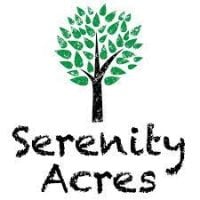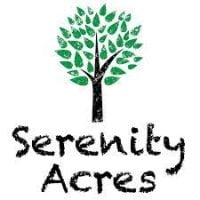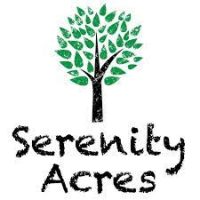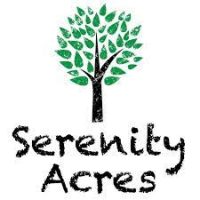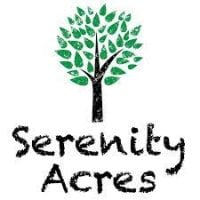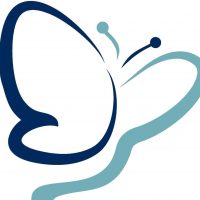Serenity Acres - 2021 Martins Grant Court
Drug Rehab Center in Crownsville, Maryland
Serenity Acres - 2021 Martins Grant Court is a residential addiction treatment center in Crownsville, Maryland that offers evidence-based treatment methods, medication-assisted treatment options, and individualized treatment plans tailored to the specific needs of each patient.
About This Maryland Facility
Serenity Acres - 2021 Martins Grant Court is a 74-bed Addiction Treatment Facility dedicated to helping those suffering from alcohol and drug addiction, as well as dual diagnosis and opioid addiction. Located in Crownsville, Maryland, the facility offers a wide range of programs and services, including aftercare support, detox, drug rehab, dual-diagnosis, inpatient, intensive outpatient, intervention, outpatient, and partial-hospitalization levels of care. Licensed and accredited by CARF, Serenity Acres accepts private health insurance, making it easier for people to access the treatment they need.
Individuals seeking treatment at Serenity Acres have access to a team of highly trained and experienced professionals who can provide compassionate and individualized care. The professionals work to create a safe and supportive environment where people can cope with their addiction, find the strength to make changes, and move towards a healthier and more fulfilling life. Through evidence-based addiction treatments and education-focused services, individuals can gain tools to prevent relapse and maintain sobriety in the long-term. Serenity Acres is also affiliated with the larger Serenity Acres network, providing access to resources such as alumni meetings and aftercare services.
Genders
Ages
Modality
Additional
Accreditations

CARF
The Commission on Accreditation of Rehabilitation Facilities (CARF) is a non-profit organization that specifically accredits rehab organizations. Founded in 1966, CARF's, mission is to help service providers like rehab facilities maintain high standards of care.
Conditions and Issues Treated
Opioid addiction is the result of repeated use, or abuse, of opioid drugs. It is recommended for people who are dependent on opioids, or who have a high risk for dangerous health concerns, to seek professional treatment. Treatment plans usually include behavioral therapy and medication-assisted treatment.
Opioid drugs include: fentanyl, heroin, methadone, oxycodone, and oxymorphone.
Opioid addiction treatment is beneficial for:
- People who have a history of severe withdrawal.
- People with a high risk for dangerous health concerns.
- People having difficulty overcoming opioid addiction on their own.
There are different kinds of Dual Diagnosis:. A person who simultaneously experiences both a mental illness and an addiction disorder. Or, a person who experiences one or more coexisting (simultaneous) mental health conditions in addition to a primary substance use disorder.
The treatment requires a multi-disciplinary approach, it’s crucial for individuals to partner up with a healthcare provider who understands all the recovery components.
Levels of Care Offered at Serenity Acres - 2021 Martins Grant Court
This center offers a variety of custom treatment tailored to individual recovery. Currently available are Aftercare Support, Detox, Drug Rehab, Dual-Diagnosis, Inpatient, Intensive Outpatient, Intervention, Outpatient, Partial-Hospitalization, with additional therapies available as listed below.
Detox is the stage of recovery where the drugs or alcohol are entirely removed from your body. There are two different ways to detox, with medications and without. For many drugs and alcohol, the acute phase of detox can be completed in a number of days.
Inpatient treatment is the most intensive level of care, and it’s necessary for those who aren’t able to control their addiction. These patients also must be drug-free before attending inpatient programs .
During inpatient treatment, addicts live at an inpatient facility 24 hours a day while receiving help. This type of program is generally recommended for those who need to go through detoxification or who are struggling with serious addiction-related issues.
An Intensive Outpatient Program (IOP) is a form of drug treatment that allows individuals to receive the therapy they need while remaining in their homes and community.
An IOP is typically 3-5 days per week, at least 4 hours each day of treatment. Treatment can last for a few months or longer, depending on the situation.
An IOP is a step down from an inpatient treatment center and can be used as a step down from an inpatient stay or as a more intense form of outpatient treatment. IOPs allow for the flexibility to continue working and living at home while still meeting treatment demands.
The outpatient programs in Crownsville, MD are for those addicted drugs or alcohol. The goal of the outpatient rehabilitation program is to make them stop abusing drugs or alcohol, reduce drug use or addictive behaviors, and become entirely sober. It is generally required to attend the outpatient program for 10-12 hours every week.
Patients can be administered on-the-spot medication to ease withdrawal symptoms such as anxiety, increased heart rate, and even depression. Groups such as Alcoholics Anonymous (AA) and Narcotics Anonymous (NA) can be used as a part of outpatient treatment to help maintain sobriety.
A Partial Hospitalization Program (PHP), also known as an Aftercare Program, is a short-term intensive treatment program usually consisting of five (5) days a week. A PHP can be an effective alternative for those who cannot commit to living in a rehab facility 24/7 but require daily medical supervision. A PHP provides comprehensive addiction services seven (7) days a week and is usually attended by the addict every day.
This allows addicts to continue working, stay close to their family and friends, and minimize disruptions to their daily routines. Upon entering a PHP, patients are assessed by Addiction Psychiatrists, Medical Doctors (MD), Nurses, Psychologists, and Therapists. This assessment will determine the appropriate level of care.
Although PHP’s are similar to residential programs, they lack 24-hour supervision. This is because aftercare patients are still expected to follow the rules of their recovery and meet specific goals. This will allow them to assimilate back into society without relapse.
The main goal of an intervention is for the addict to go to rehabilitation and address their addiction.
Interventions are meetings organized by friends and family of an individual with addiction. A specialist is present to lead the discussion and motivate the addict to seek external support. Intervention services help family members to open up about their feelings and concern for the addict. This expressiveness usually results in the addict seeking treatment at a rehabilitation facility.
Aftercare support is a service many addicts need to ensure their success at recovery. This service usually includes one-on-one or group therapies, assistance from a sponsor and other types of help designed to make sure the patient continues living a life free from drugs.
Patients also may require medication to help them battle addiction. Some people have been able to successfully recover without additional medications, but others have found that they need help during their transition. Long-term, the patient must take the initiative to attend meetings and receive help from other addicts in recovery.
Therapies & Programs
People in addiction recovery can benefit from individual therapy. This type of therapy involves meeting with a therapist one-on-one. This allows for a personal and trusting relationship to be built so that the patient can be truly themselves and express any emotions they feel. Individual therapy leads to greater understanding and peace about your triggers for addiction and coping strategies to prevent relapse.
Family therapy is a type of group problem-solving that aims to improve communication and relationships between the patient, their family, and sometimes friends. The main goal of family therapy for drug addiction is to create an environment where communication can occur without judgment, hostility, or blame. The therapist is with the family as they learn to communicate with each other differently, especially with the addict when s/he is using.
Group therapy sessions are held in rehab facilities, clinics, churches or community centers that offer drug addiction treatment. People who attend these groups are encouraged to voice their feelings and support other addicts in recovery. This helps group members strengthen their own recovery program while cheering on others who are struggling with sobriety.
Group therapy sessions provide recovering addicts with a chance to cope with everyday situations that many face. Group therapy sessions are held in rehab facilities, clinics, churches or community centers that offer drug addiction treatment.
People who attend these groups are encouraged to voice their feelings and support other addicts in recovery. This helps group members strengthen their own recovery program while cheering on others who are struggling with sobriety.
If you’re looking for addiction treatment, it’s important to find a facility that offers trauma therapy. This type of therapy helps people process and understand the past traumas that have led to their addiction. Trauma therapists will work with clients to help them understand their past and present relationships and show them that they are worthy of love. This therapy is typically done using visualization, discussion, and writing down thoughts and feelings.
Trauma Therapy is a form of therapy that involves working with a patient to help them process and understand the past trauma(s) in their life. This therapy is typically done using techniques such as visualization, discussion, and writing down thoughts and feelings. The main goals of trauma therapy is to help clients express their emotions and talk about what they are feeling.
Dialectical Behavior Therapy (DBT) is a form of cognitive-behavioral therapy that helps people understand how they connect their thoughts, behaviors, and feelings. It can give them more control over their actions, effectively stopping self-harm ideations and attempts in some patients. It also helps put those with borderline personality disorder into control for managing mental struggles.
A new study has shown that DBT works for those with self-harm behaviors and addictions by giving them therapy they can relate to and understand.
Cognitive Behavioral Therapy (CBT) helps addicts identify faulty, negative thinking so that they can work together with the therapist to find healthier ways of thinking. CBT focuses on specific aspects of each person’s thinking, feeling, physiology, and behavior. It aims to identify specific problems in these areas, and create a personalized treatment strategy.
Addicts often experience intense cravings for sugary foods during recovery. By teaching addicts how to eat well and stay healthy, therapists can help them manage their cravings over the course of treatment.
During these sessions, Crownsville, Maryland dietitians and therapists will offer advice about healthy eating options and teach addicts how to make specific changes in their diet that can help reduce the effects of cravings during recovery.This type of therapy is often used in conjunction with other types of addiction treatment services. By identifying specific triggers and developing strategies to help addicts avoid relapse, most individuals can overcome their cravings and stay sober for good after they finish rehab.
The first step to becoming a non-smoker is the choice to quit smoking. Nicotine replacement therapies are effective because they provide you with the nicotine you are addicted to without inhaling carcinogens from cigarettes.
There are several types of NRT. These include:
- Nicotine gum
- Nicotine patches (transdermal systems)
- Nasal spray
- Lozenges
The benefits to using NRT can include:
- Reduce the risk of heart disease and cancer
- Reduce the anxiety and irritability associated with quitting smoking
- Reduce the risk of type II diabetes.
- Improved fertility in women
Patient Experience
Experiential Therapy at Serenity Acres - 2021 Martins Grant Court
Experiential Therapy allows addicts to release emotions in a safe environment. The process involves addicts painting their feelings and releasing them on a canvas. LPE – Love, Peace, and Equilibrium is one of the most popular forms of experiential therapy.
Payment Options Accepted
For specific insurance or payment methods please contact us.
Is your insurance accepted?
Ask an expert, call (888) 674-0062
Additional Details
Specifics, location, and helpful extra information.
Crownsville, Maryland 21032 Phone Number(800) 203-2024 Meta DetailsUpdated November 25, 2023
Staff Verified
Patient Reviews
There are no reviews yet. Be the first one to write one.
Crownsville, Maryland Addiction Information
For the past decade, Maryland's rate of drug use and abuse has significantly increased. The overdose rate is currently higher than the national average. This epidemic is due to the many industries where manual labor is required. As soon as prescription opioids were more readily accessible a large part of manual workers started using–and eventually abusing–the painkillers.
The drug addiction problem in Crownsville, Maryland, is relatively bad. More than 844,000 people were admitted to treatment programs. Drug addiction and abuse lead to many negative consequences for the community, such as crime, violence, and public health problems. In Crownsville, Maryland, the common types of drug treatment include inpatient treatment, outpatient treatment, and residential treatment.
Treatment in Nearby Cities
- Bel Alton, MD (43.4 mi.)
- Joppa, MD (31.4 mi.)
- Perry Hall, MD (28.0 mi.)
- Glen Burnie, MD (9.0 mi.)
- Randallstown, MD (24.5 mi.)
Centers near Serenity Acres - 2021 Martins Grant Court
The facility name, logo and brand are the property and registered trademarks of Serenity Acres - 2021 Martins Grant Court, and are being used for identification and informational purposes only. Use of these names, logos and brands shall not imply endorsement. RehabNow.org is not affiliated with or sponsored by Serenity Acres - 2021 Martins Grant Court.
